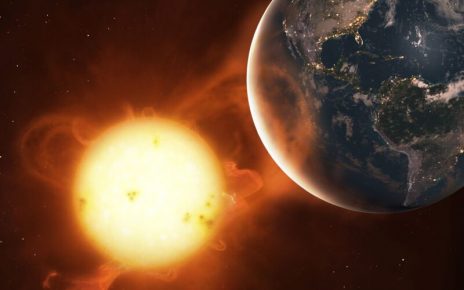Harvard astronomers have a new theory about the origin of the comet that led to the extinction of the dinosaurs.
Some 66 million years ago, a catastrophic event occurred that wiped out three-quarters of all plant and animal species on Earth, most notably taking down the dinosaurs. An errant asteroid from the asteroid belt has been deemed the most likely culprit. However, in a new paper published in Scientific Reports, Harvard astronomers offer an alternative: a special kind of comet—originating from a field of debris at the edge of our solar system known as the Oort cloud—that was thrown off course by Jupiter’s gravity toward the Sun. The Sun’s powerful tidal forces then ripped pieces off the comet, and one of the larger fragments of this “cometary shrapnel” eventually collided with Earth.
The most widely accepted explanation for what triggered that catastrophic mass extinction is known as the “Alvarez hypothesis,” after the late physicist Luis Alvarez and his geologist son, Walter. In 1980, they proposed that the extinction event may have been caused by a massive asteroid or comet hitting the Earth. They based this conclusion on their analysis of sedimentary layers at the Cretaceous-Paleogene boundary (the K-Pg boundary, formerly known as the K-T boundary) found all over the world, which included unusually high concentrations of iridium—a metal more commonly found in asteroids than on Earth. (That same year, Dutch geophysicist Jan Smit independently arrived at a similar conclusion.)
Since then, scientists have identified a likely impact site: a large crater in Chicxulub, Mexico, in the Yucatan Peninsula, first discovered by geophysicists in the late 1970s. The impactor that created it was sufficiently large (between 11 and 81 kilometers, or 7 to 50 miles) to melt, shock, and eject granite from deep inside the Earth, probably causing a megatsunami and ejecting vaporized rock and sulfates into the atmosphere. This in turn had a devastating effect on global climate, leading to mass extinction.





